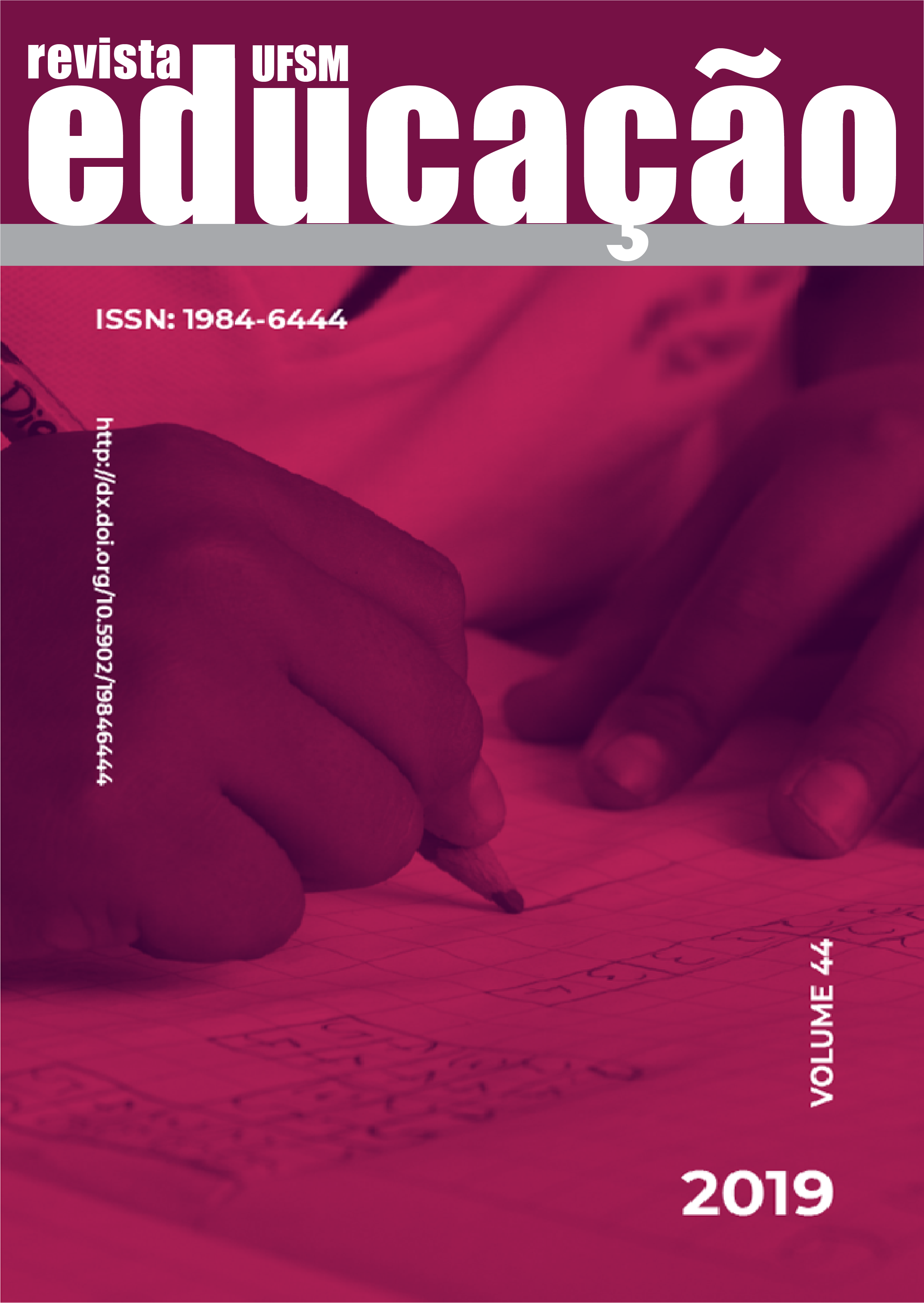Education and technology: the crisis of intelligence
DOI:
https://doi.org/10.5902/1984644437943Keywords:
Education, Technology, Intelligence.Abstract
I investigated the relationship between education and technology, arguing about the limits, challenges and possibilities of coping with what we call the crisis of intelligence. My goal is to show how new technologies are transforming the way we think and act. There are many researches and reflections that show the negative influences of new technologies. However, in the educational field, there are few studies that attempt to highlight these difficulties. In this way, I understand the need to reflect, investigate and argue about the consequences of new technologies for education, based on a specific bibliography in this regard. New technologies, the internet, for example, are means and not the ends of education. As a means, they serve educational purposes, not vice versa. Therefore, it is not a question of prohibiting the access of new generations to new technologies, but of creating an educational space where they can develop all their capacities. The use of these technologies has compromised the development of important cognitive capacities such as memory, imagination and also the faculty of thinking and cooperating. To meet these challenges, revealing the results of the research, I suggest, at the end of the article, three measures that can be implemented immediately in our educational institutions.References
ADORNO, Theodor. Educação e emancipação. São Paulo: Paz e Terra, 2006.
BOS, Maarten W.; DUKE, Kristen; GNEEZY, Ayelet; WARD, Adrian F. Brain Drain: The Mere Presence of One’s Own Smartphone Reduces Available Cognitive Capacity. In: Journal of the Association for Consumer Research, v. 2, n. 2, 2017. Disponível: https://www.journals.uchicago.edu/doi/pdfplus/10.1086/691462. Acesso em 12 nov. 2017.
CARR, Nicholas. A geração superficial: o que a internet está fazendo com os nossos cérebros. São Paulo: Agir, 2011.
FLUSSER, Vilém. O mundo codificado: por uma filosofia do design e da comunicação. Organizado por Rafael Cardoso. São Paulo: Cosac Naify, 2007.
HEIDEGGER, Martin. A questão da técnica. In: Scientiæ zudia, São Paulo, v. 5, n. 3, p. 375-398, 2007.
HONNETH, Axel. O eu no nós: reconhecimento como força motriz de grupos. In: Sociologias, Porto Alegre, ano 15, n.33, p. 56-80, 2013.
HORKHEIMER, Max. Eclipse da razão. São Paulo: Centauro, 2002.
MORDUCHOWICZ, Roxana. Los adolescentes y las rede sociales: La construcción de la identidade juvenil en Internet. Buenos Aires: Fondo de Cultura Económica, 2012.
POSTMAN, Neil. O fim da educação: Redefinindo o valor da escola. Rio de Janeiro: Graphia, 2002.
SADIN, Éric. La humanidade aumentada: La administración digital del mundo. Buenos Aires: Caja Negra, 2017.
READHEAD, Zoë Neill. Summerhill Hoy. Valencia: Litera Libros, 2012.
SENNETT, Richard. Juntos: os rituais, os prazeres e a política de cooperação. Rio de Janeiro: Record, 2013.
SERRES, Michel. Polegarzinha: uma nova froma de viver em harmonia, de pensar as instituições, de ser e de saber. Rio de Janeiro: Bertrand Brasil, 2013.
SIBILIA, Paula. Redes ou paredes: A escola em tempos de dispersão. Rio de Janeiro: Contraponto, 2012.
SPYER, Juliano. Mídias sociais no Brasil emergente: como a internet afeta a mobilidade social. London: UCL Press, 2018.
TÜRCKE, Christoph. Sociedade excitada: filosofía da sensação. Campinas/SP: Unicamp, 2010.
TURKLE, Sherry. Alone Together: Why we expect more from technology and less from each other. Nova York: Perseus Books, 2012.
Published
How to Cite
Issue
Section
License
Declaration of originality
We declare that all articles present in the journal Educação (UFSM) are originals and were not submitted for publishing on any other publication, as a whole or a fraction. We also declare that, after being published by Educação (UFSM), a paper will not be submitted to another journal within two years. After this time, our journal transfers the publishing rights to the authors, with a permit granted by the Editorial Council.
We also acknowledge that the originals’ submission to Educação (UFSM) implies on a transference of copyright for physical and digital publishing to the journal. In case of noncompliance, the violator will receive sanctions and penalties predicted by the Brazilian Copyright Protection Law (n. 9610, dated 19/02/98).
Attribution 4.0 International (CC BY 4.0)
This license lets others remix, transform, and build upon the material for any purpose, even commercially, and copy and redistribute the material in any medium or format.

This work is licensed under a Creative Commons Attribution 4.0 International (CC BY 4.0)






